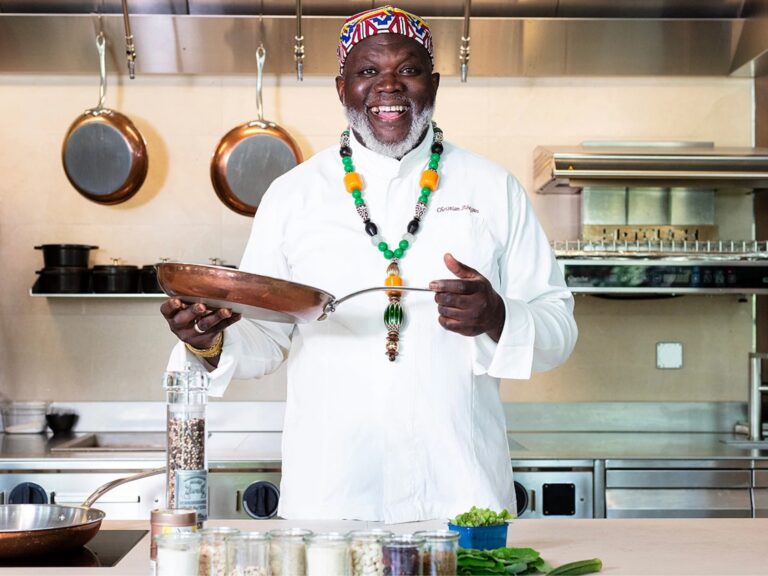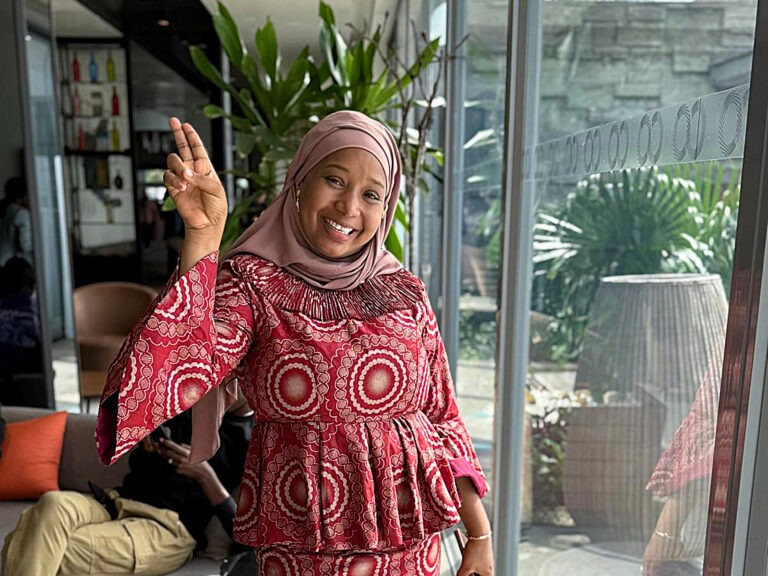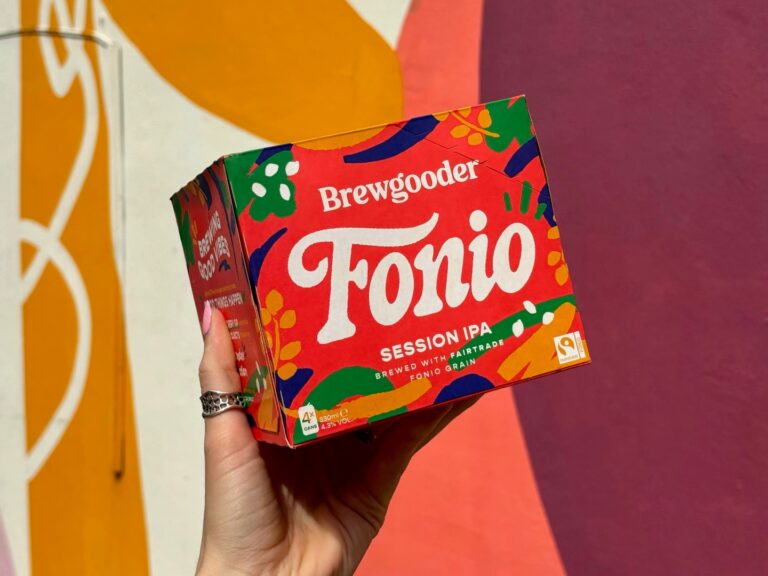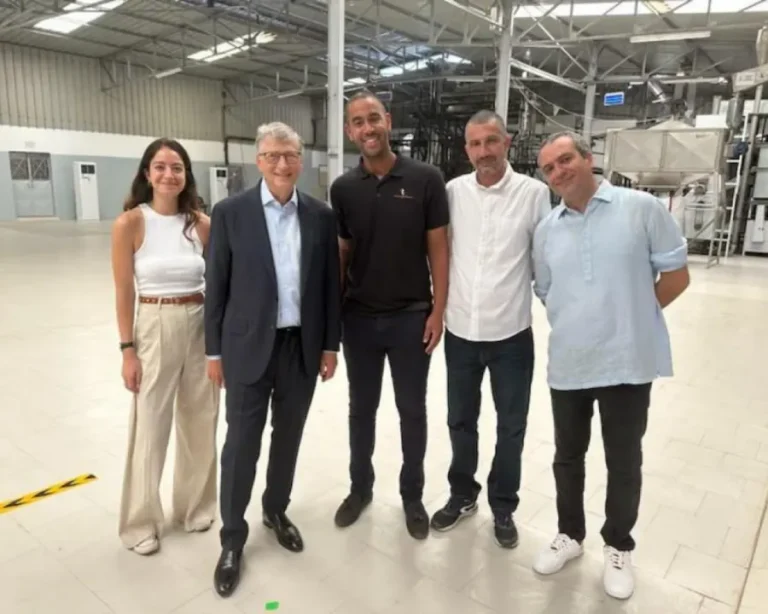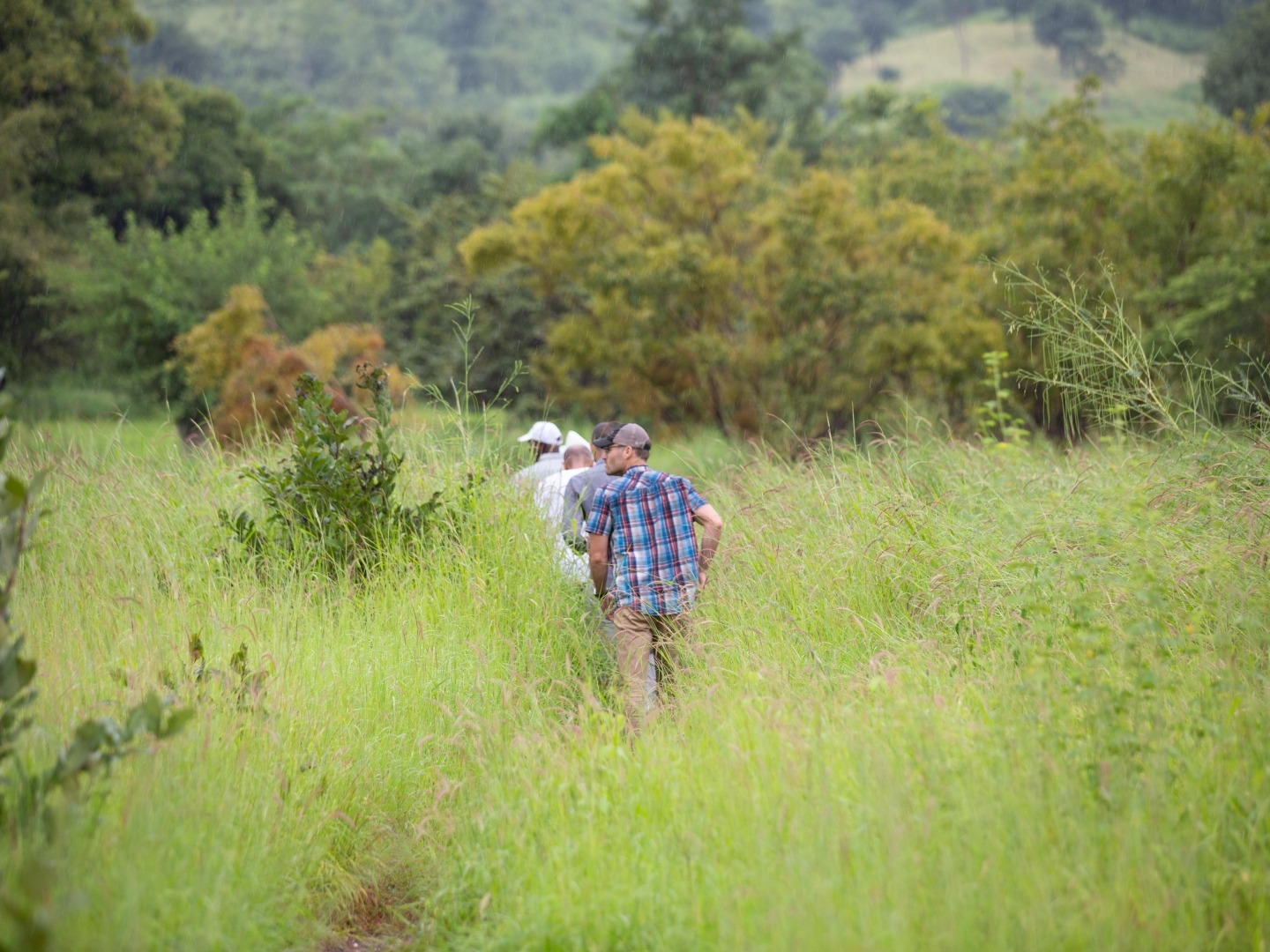
In their 2024 Global Report on Food Crises, the Food Security Information Network (FSIN) and the Global Network Against Food Crises revealed that over 280 million people across 59 countries faced acute food insecurity in 2023, a troubling increase of nearly 24 million from the previous year. Despite advancements in agriculture and technology, the situation is only continuing to deteriorate, exacerbated by weather extremes, regional conflicts, and economic shocks. The FSIN also highlighted a reduction in humanitarian funding and rising delivery costs, negatively impacting food assistance rations in many food-insecure nations.
We recognize our limitations at Terra Ingredients as a small company in addressing global food security; however, we believe that significant changes can stem from smaller, systematic, and replicable actions. We take pride in our efforts, particularly our fonio projects in the Sahel region of West Africa, where nearly 45 million people faced acute food insecurity in 2023, worsened by historic El Niño droughts that struck the region earlier this year. By partnering with smallholder farmers in this region and giving them an economic outlet for their fonio farms, we’re beginning to see the positive impact on these farmers and their surrounding communities.
To further illustrate our commitment to improving food security and how Terra Ingredients is approaching this urgent matter, we recently interviewed our Director, Peter Carlson.
Interview with Peter Carlson:
Q: How would you summarize Terra’s overall commitment to food security?
Peter Carlson: “At Terra, we have always viewed ourselves as a soil-centric and farmer-centric company, so that’s where we start with all our products and initiatives. By contracting directly with producers, processing the ingredients in-house or with our partner facilities, and selling them directly to the end brands, Terra is the link between the farmers and food brands/end-users. From North and South America to Europe, Africa, and elsewhere in the world, that’s Terra’s role.
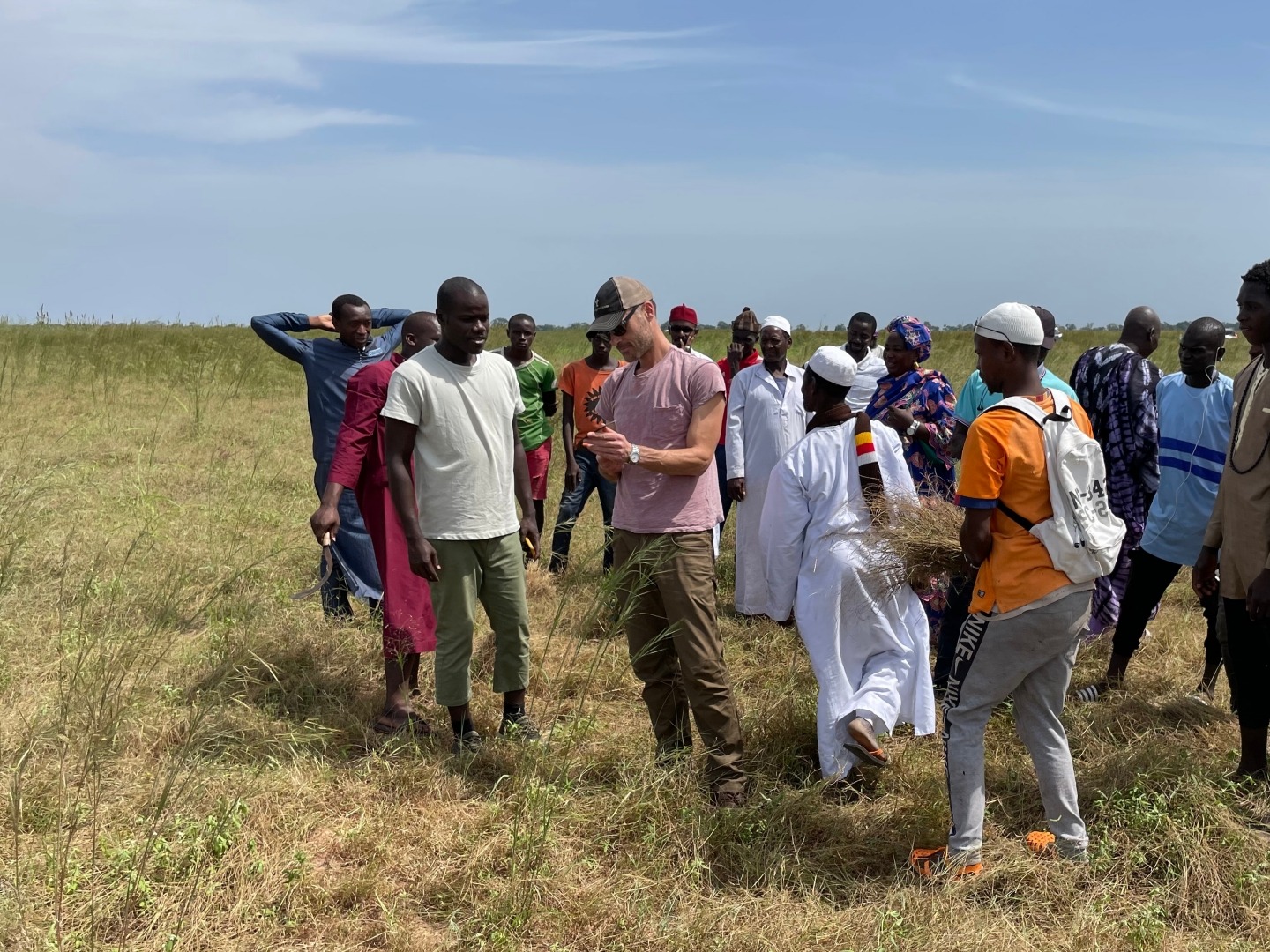
Ultimately, food security is the desired effect but not necessarily the singular cause of our work. What I mean by the “cause” is that our primary focus and efforts are developing farmer relationships, increasing fonio production, and increasing fonio awareness & consumption. If we can accomplish all of these goals, the natural effect of our work will be the increase of food security for those farmers and their communities.”
Q: What has been your approach to food security regarding the fonio project in West Africa, where acute food insecurity is more prevalent?
Peter: “Regarding the fonio project, our approach is to work directly with farmers and have them see the benefits of their labor. Although improving food security for fonio farmers wasn’t what led us to the project, it has become a natural byproduct of how we do business. This comes via Terra having a very efficient supply chain––from producer to processor and supplier to distributor, all the way to the end-user––by cutting out many of the middlemen and doing that efficiently from farm to store, shelf, table, etc. So, that same model we’ve applied elsewhere, the effect it can have now that we’re in West Africa is increased food security for the region.”
Q: What role do you see Terra performing in ensuring food security for fonio farmers and their communities, and what have you observed so far at the farm level?
Peter: “The small-scale producers are beginning to see the vision that fonio is a product that consumers love once they discover and learn more about it. This is what brought Terra to Africa a few years ago to explore the opportunity with fonio, investing in a processing plant with CAA, our family-owned strategic partner facility in Dakar, Senegal, and investing in trying to develop both the local and international market for it. From that point, starting in West Africa, it has become apparent that although there is a large, economically vulnerable population in that region, they have excellent natural resources for food production. Yet, broadly speaking, those communities have not benefited from their natural resources. It doesn’t make sense to us that a resource-rich region would be vulnerable to food scarcity—but that is the case throughout much of West Africa.

So, we see Terra’s role in working with farmers and food products within West Africa as helping to increase food security on a small scale in the regions where we are building partnerships. The simple math is that the more food grown in a region, the more food secure it will be and the better its food access will be. We see that as a win-win for our North American and European consumers, who can purchase a quality ingredient while simultaneously improving the economic livelihoods of small-scale farmers.
To help get more farmers growing fonio, we’ve conducted a handful of seed sponsorships for farmer groups that couldn’t afford to buy the seed to plant fonio. In those cases, we covered the cost of the seed on the front end so they could participate in the next harvest. But that often still isn’t enough to guarantee a successful harvest will follow. In instances of crop failure, poor farming techniques, or insufficient harvest production, we’ve also increased farmer education around proper seeding, cultivation, and improving yields. For example, we can buy a thresher and sponsor seed for a village, but it won’t benefit anybody if the fonio is not farmed correctly––nor will it be a sustainable project.

We’re also constantly working to improve seed quality and what soils are being used, helping farmers find the best plots of land for the highest yields. By maximizing seed and soil quality, farmers can increase their fonio outputs substantially at no extra cost on the front end, increasing both their income and the cost efficiency for the end-buyers. Nobody will pay $3 per lb of fonio on a mass scale, so it’s necessary to work on the efficiency of the entire supply chain from farm to table.”
Q: Would increasing fonio production and demand on a smaller scale make it possible to achieve comprehensive food security in the regions where Terra sources fonio?
Peter: “It’s possible, but the way I’d frame it is: fonio is an interesting market opportunity in general, but honestly, it’s been slower out of the gates than we expected. However, the reason we haven’t given up and why we still have a passion for helping grow the fonio initiative is because we can see the net effect on the farmers that we work with. So, that passion for helping increase food security and economic security drives much of the enthusiasm for the fonio project. The overall impact we can foresee in the not-so-distant future keeps us going and is why we still have this strong desire to build out the fonio supply chain.”
Q: How would you compare the effects of Terra’s work on food security to that of an NGO?
Peter: “There’s a tremendous number of NGOs around West Africa that are trying to do good work, and some are certainly doing just that, but there’s automatically a limit to the development dollars those organizations can access or invest since they rely on donations and contributions. However, we have experienced firsthand the excitement that both NGOs and other developers have about what we’re doing at Terra by introducing a sustainable outlet for fonio farmers to receive a direct economic benefit for their work.
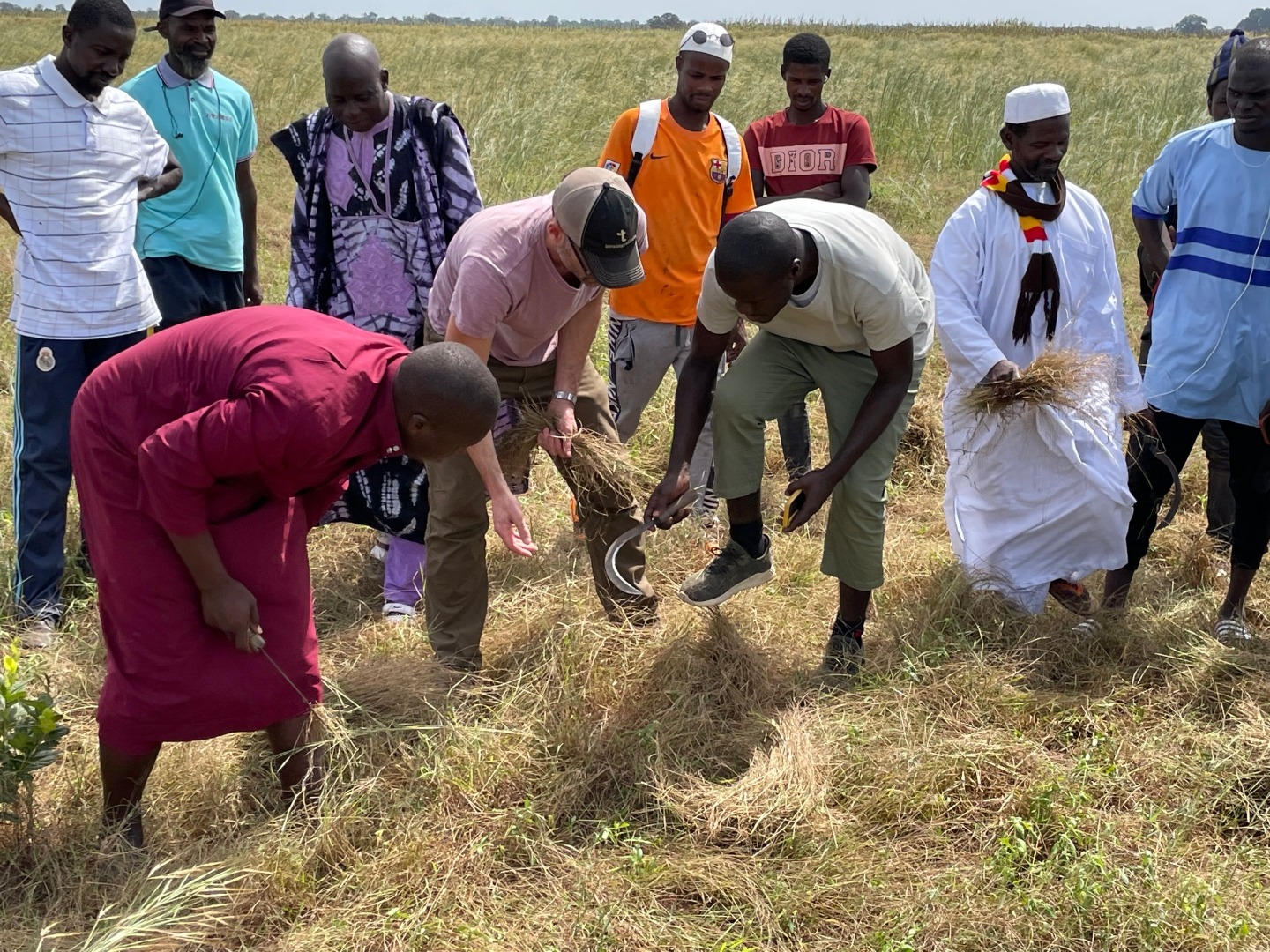
We talk a lot about how sustainable fonio is as a crop, both for soil health and the limited water requirements to grow it. Still, it takes a sustainable business model to have a long-term economic impact and drive real change. A fair and ethical commercial business supporting the growth of supply and demand for fonio is a long-term investment that isn’t dependent upon changes in budgets or changes in leaders at organizations. Sometimes, decision-makers at non-profits and similar organizations can have competing interests or differing passions for the project, which may not be involved in the food or the farmers. Farmers and villages express cynicism about NGOs, aid organizations, and support groups because they often come and go. They may work on a project for one year or state lofty support goals at the outset, but then they’re gone before real traction can occur.
And we see skepticism of Terra, too, until the farmers actually go through the labor of producing the fonio, selling it to us, and then receiving the money directly––and at a good price. That’s when they say, ‘Wait a second, Terra didn’t just donate money, which is now gone with little to show for it.’ We are helping to create viable businesses where the farmers can reap the rewards of their labor, and there’s pride and a sense of accomplishment that comes with that. We’re not simply giving economic resources to farmers. They have earned it. It’s a fair and equitable exchange that works for them and Terra. A successful commercial enterprise like this can make a long-term difference in food security in West Africa.”
Q: Do you have specific examples of how Terra’s presence in West Africa has affected positive change for fonio farmers and their communities?
Peter: “There have been a handful of cases where a piece of land is fallow and not being utilized. However, once a farmer starts growing and harvesting fonio with that land, there’s much more work within the village. There’s often plenty of farmable land in these villages, which I consider rich in land resources but not in economic opportunity. Witnessing these villagers take fallow land, produce fonio with it, and then receive an economic benefit for the crop is powerful, and their interest in it is powerful.
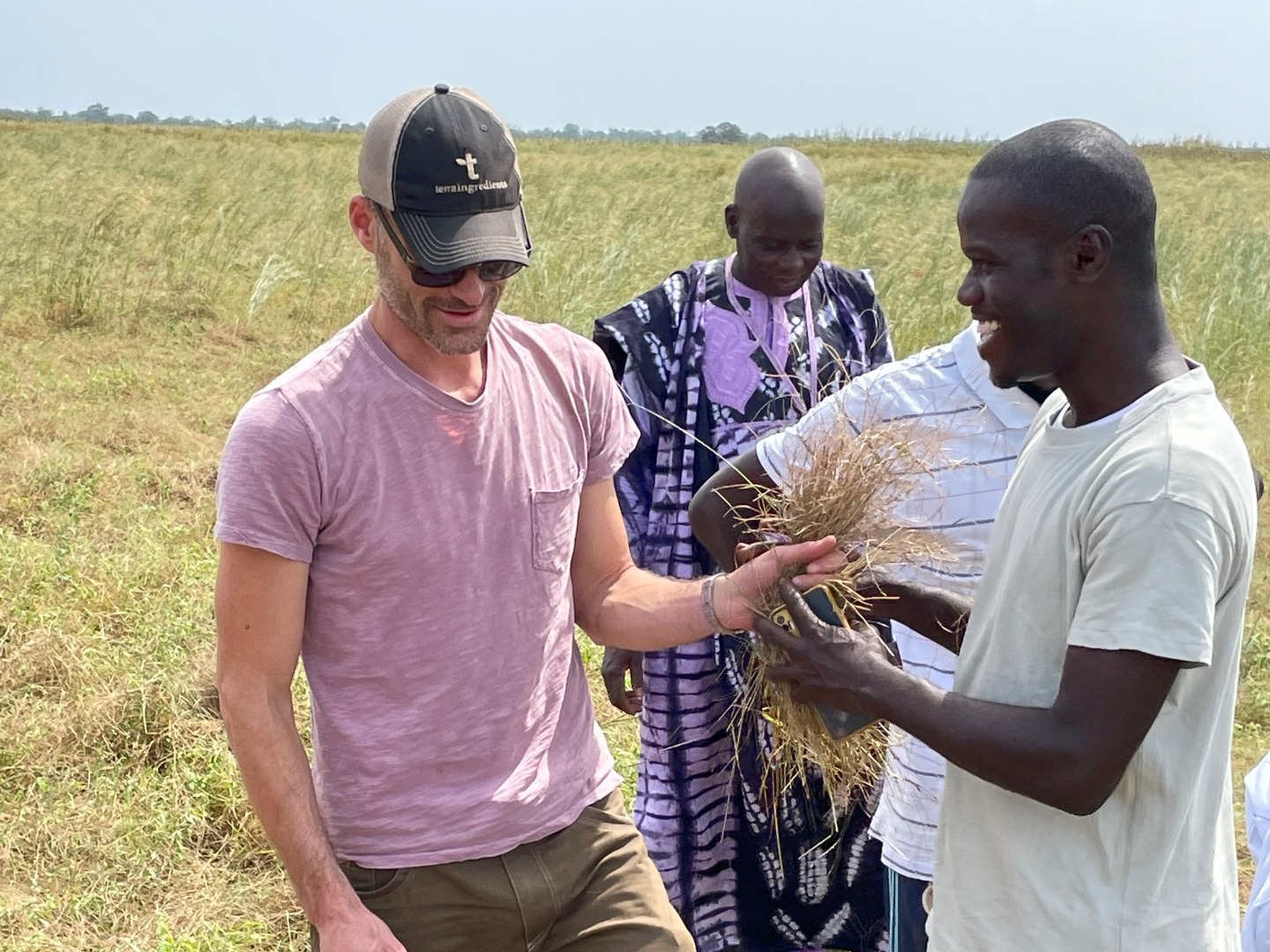
Regarding other positive impacts, Terra also bought equipment for a handful of farms over the past few years. Specifically, we have supplied a couple of threshers to villages, which is essential for farmers to process enough fonio to sell as a surplus beyond just sustenance. Not having a thresher severely limits how much a person can work since fonio has traditionally been processed by hand, which is highly laborious. Typically, this process requires many people and is one of the most tedious parts of harvesting fonio, whereas only one person is needed to operate a thresher. The benefit of having threshers is multiplied across numerous villages, with those villages able to share a thresher amongst each other whenever it comes time to harvest their crop. These farmers and other workers can now concentrate primarily on farming, not the labor of threshing, which is slow and difficult when done by hand.
Q: Finally, why is it essential to educate food brands and consumers about buying ingredients from suppliers like Terra, whose business practices promote food security?
Peter: “Not to be too philosophical about it, but you’ve probably heard the saying, ‘The death of an individual is a tragedy. The death of a million people is a statistic.’ So when we think about macro-problems that are maybe in a faraway place, that has a different experience and it hits our consciousness differently than looking people in the eye and sharing a meal, or just sitting at a table and enjoying our mutual humanity and commonality. So that part, seeing farming at the individual level, that gives us a concern at the consumer-level when we can relate and see where our food comes from. In this example, we care more compared to when we have no idea where our food comes from and how it’s all connected.

I think consumers do care about where their food comes from almost universally, but we often don’t have outlets to exercise that care. In our modern age of marketing and advertising, there is a level of cynicism towards brands with grand claims to virtue because it can feel like everyone is making this claim about their products, but we know it’s not always 100% genuine. We do our best to show our customers exactly where our food products come from, receiving certifications like Fairtrade for our fonio project in Guinea. These certifications put a guarantee on our product labels that the people who produce this food are receiving an above-market rate for their work. We also know the names and faces of the farmers in the village we are working with, so we experience firsthand the hard work, challenges of daily life, and the positive effects of providing an economic benefit for their labor on their communities. From there, we share these stories with our customers and their consumers so they can also feel their contribution to enriching the lives of the growers while enjoying high-quality products.
On the macro level, we can see worldwide how people don’t have a direct involvement in their success or the ability to control their own situation. It leaves us with a lot of really angry and fearful people. So, stability, starting with basic food and economic security, is in the interest of the entire world. Ultimately, we are in a globalized world with a global economy. Even participating on a smaller scale, we have an interest in that too. It’s a net benefit all around when we’re cultivating good food and supporting underdeveloped regions.”
